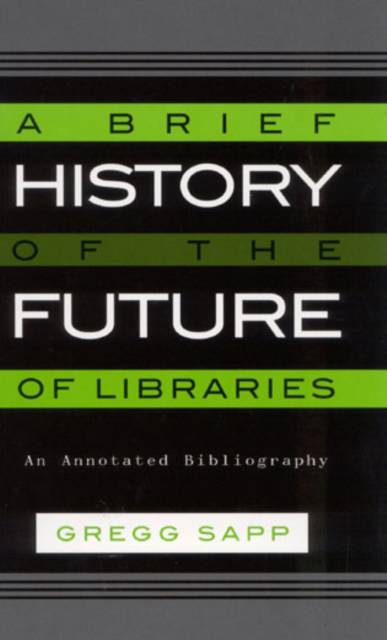
- Afhalen na 1 uur in een winkel met voorraad
- Gratis thuislevering in België vanaf € 30
- Ruim aanbod met 7 miljoen producten
- Afhalen na 1 uur in een winkel met voorraad
- Gratis thuislevering in België vanaf € 30
- Ruim aanbod met 7 miljoen producten
Zoeken
€ 128,95
+ 257 punten
Omschrijving
As we enter a new millennium, librarianship and other information professions are swept up in a period of rapid, almost frantic, change. But while there is widespread recognition that libraries in the future will be vastly different from what we know today, precisely how this change will occur is and always has been a matter of considerable speculation. To this end, Gregg Sapp has analyzed library-based predictions made between 1978, the year F.W. Lancaster published Toward Paperless Information Systems, and 1999;and compared them with seminal works published since 1876, the publication of the first issue of American Library Journal. Includes [between 500 and 700] annotated entries.
Specificaties
Betrokkenen
- Auteur(s):
- Uitgeverij:
Inhoud
- Aantal bladzijden:
- 336
- Taal:
- Engels
Eigenschappen
- Productcode (EAN):
- 9780810841963
- Verschijningsdatum:
- 4/09/2002
- Uitvoering:
- Hardcover
- Formaat:
- Genaaid
- Afmetingen:
- 169 mm x 230 mm
- Gewicht:
- 471 g

Alleen bij Standaard Boekhandel
+ 257 punten op je klantenkaart van Standaard Boekhandel
Beoordelingen
We publiceren alleen reviews die voldoen aan de voorwaarden voor reviews. Bekijk onze voorwaarden voor reviews.











